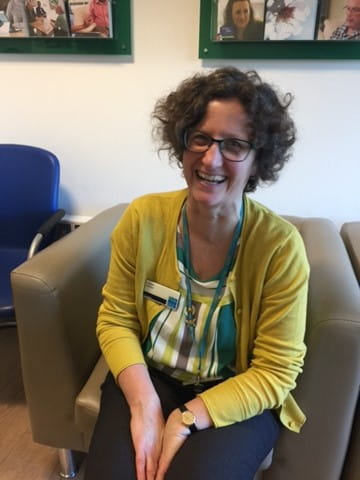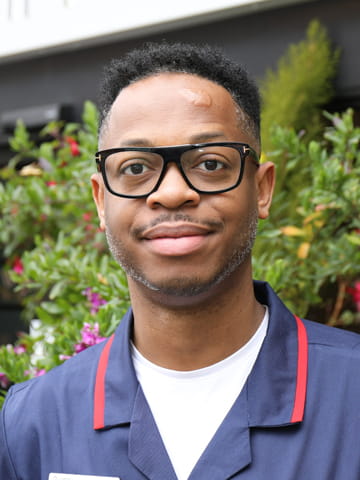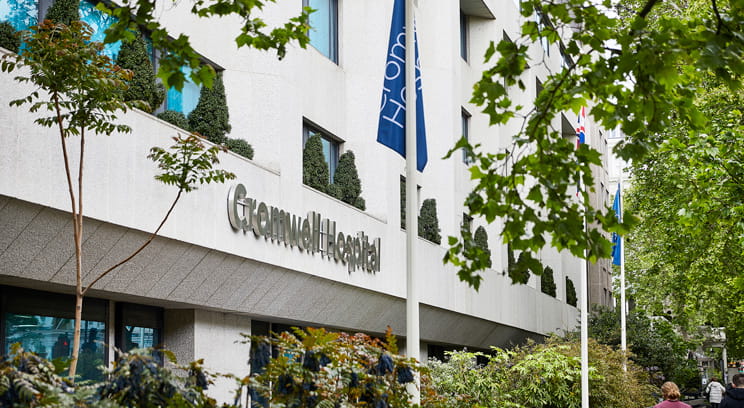Cancer affects many of us and is the leading cause of death worldwide. As we have an increasingly older population, more and more of us are likely to be touched by this potentially devastating disease.1 Thanks to research, the cancer survival rate has doubled over the last 40 years and around half of patients now survive the disease. Around the world, there is incredible work being done in the field, which is significantly improving outcomes for patients. One shining example of ground-breaking cancer care is Cromwell Hospital in London.
Cromwell Hospital, located in the South Kensington area of London, is world-renowned for treating all types of cancer, including breast, bowel, blood, gynaecological, prostate, liver, lung, skin, gastrointestinal and thyroid cancers. As well as access to a world-leading clinical team, Cromwell Hospital also offers rapid diagnostics, genetic testing, and leading cancer treatments. These include minimally invasive and robotic surgery, advanced radiotherapy, and some of the latest cancer drugs, which, based on genomic analysis, provide targeted therapy for cancer patients as a single agent or combination therapy.
We sat down with some of the hospital’s leading experts to understand more about some of the work underway at Cromwell Hospital.
DR NICK PLOWMAN
The hospital has a radiotherapy unit which can provide ground-breaking technologies such as Gamma Knife radiotherapy - a highly effective method of treating brain tumours and neurological and functional disorders.
Dr Nick Plowman, Consultant Clinical Oncologist, is one of the UK's most experienced cancer physicians and an authority on cancer management. He and his clinical team have introduced new medical treatments and his research work has led to advances in medical practice worldwide, including the introduction of aromatase inhibitors into breast cancer management and glucocorticoids into advanced prostate cancer management.

Bupa: Cromwell Hospital provides treatment for a range of cancers – are you able to tell us a little more about the oncology department and how it works?
Dr Plowman: Cromwell Hospital has a comprehensive cancer care department where specialists from major London teaching hospitals provide expert care for the full breadth of all types of cancer. Our department includes an oncology ward, and a chemotherapy day unit supported by a specialist pharmacy which provides chemotherapy drugs, ‘smart drugs’, genetically targeted drugs, and immunotherapy. The hospital has a radiotherapy unit which can provide ground-breaking technologies such as Gamma Knife radiotherapy - a highly effective method of treating brain tumours and neurological and functional disorders.
B: We know that in cancer care, speed of treatment is imperative. How quickly on average does it take to see a patient from their initial contact?
NP: That’s right – speed is of the essence. At Cromwell Hospital, urgent cancer referrals are seen within 24 to 48 hours for initial assessment. The patient journey involves initial assessment, rapid diagnosis (scans, biopsy, staging), then a discussion of treatment and therapy options.
B: Has there been an increase in the number of international patients choosing Cromwell Hospital for their cancer treatment? How do you support patients from overseas?
NP: We welcome patients from across the world who choose us for industry-leading care. Due to ongoing interest from the United Arab Emirates, our Oncology Department has had a large Middle East referral base, as well as North and West Africa, Europe, and the East. We have established an International Patient Centre to assist overseas patients, providing interpreters and support so that our international patients have a smooth and comfortable experience with us.
B: Will those who have been diagnosed at Cromwell Hospital usually continue their treatment journey with you? Do some patients come to you after being diagnosed elsewhere, or mid-way through treatment with another provider?
NP: Many international patients come for diagnosis, staging and commencement of cancer care. Often, they return to their home countries to continue therapy, but they may stay in touch with us and return for a follow up or if problems arise.
We often receive patients at different stages of their cancer pathway – if there is a relapse, when surgery is needed, or specialist drug/genetic treatment, therapy/immunotherapy, or radiotherapy.
HELEN STOREY
After receiving a diagnosis of cancer, people can understandably feel out of control and anxious. Talking about their feelings in a confidential and non-judgemental environment can bring a sense of relief and help with symptoms such as depression, sleeplessness, and anxiety.
Cancer brings about many changes in a person’s life, emotional as well as physical – and Cromwell Hospital offers counselling to support cancer patients and their families. Helen Storey is a qualified psychotherapist and specialist cancer counsellor, with more than 20 years’ experience in giving emotional support to those impacted by cancer: both patients and their families, including children. We asked Helen about her role and the care that Cromwell Hospital offers.

Bupa: What does your role involve?
Helen Storey: My role is to provide both inpatient and outpatient counselling to cancer patients at Cromwell Hospital. I work both with a prehabilitation clinic - offering psychological support to those patients who are newly diagnosed - and with the palliative care team. I’ve been at Cromwell for seven years, before which I worked for various cancer charities.
B: Are all Cromwell patients offered counselling as part of their oncology pathway?
HS: I receive referrals from different members of our multidisciplinary team including consultants, nurses, healthcare assistants, radiographers, and physiotherapists. Our prehabilitation clinic is new, and currently in pilot. It has been designed to offer support and counselling prior to treatment, as research shows prehabilitation leads to better outcomes for physical and psychological health and recovery.
People can access counselling at any stage of their treatment journey: for some, this is at the beginning when they are newly diagnosed. For others, it is towards the end, when the consultant is booking in a follow up appointment.
I offer regular outpatient appointments, and out of necessity with cancer treatment, ad hoc inpatient appointments too, for patients and their families.
B: Why is psychological support so important for oncology patients and their families? How does it make a difference?
HS: After receiving a diagnosis of cancer, people can understandably feel out of control and anxious. Talking about their feelings in a confidential and non-judgemental environment can bring a sense of relief and help with symptoms such as depression, sleeplessness, and anxiety. Being treated at Cromwell Hospital, and receiving support from the whole team, which includes other health professionals, counselling, physiotherapy, complementary therapies, and dietetics, can help patients manage the side effects of treatment, feel less alone, and find coping strategies in a supportive atmosphere.
QUINCY WILLIAMS
It’s important to note that continuity of care is vital - patients are assigned to a dedicated consultant, experienced, and specialised in treating their respective illness.
Quincy Williams is the Oncology Modern Matron at Cromwell Hospital. An experienced nursing practitioner, Quincy’s oncology nursing specialty training was completed in Indiana, US, in 2013. He moved to the UK in 2018 and says: “My work in oncology has helped me build an amazing professional relationship with the Cromwell Hospital family.”

B: What do you believe sets Cromwell Hospital apart in terms of its Oncology and private cancer treatment?
Quincy Williams: As a private cancer centre, we provide personalised, individualised patient care. I think what sets us apart is that we can actively treat patients within two weeks of diagnosis, without delay.
B: What is your role in ensuring patients receive the best and highest standard of treatment at all stages of their journey?
QW: My role is to be a patient advocate from the start to the conclusion of a patient’s cancer journey, whether they are coming from overseas or locally. Ensuring that the patients are accurately assessed before, during, and after treatment is vital.
B: How do you make cancer patients comfortable during the different stages of their treatment?
QW: We work as a team to ensure that all our patient needs are met. Our excellent catering team provides a bespoke menu for patients of all cultures and nationalities.
We have achieved the Macmillan Quality Environment Mark (MQEM), receiving the maximum score (5/5) for both ‘service experience’ and ‘user journey’. The MQEM awards hospitals that champion cancer environments that go above and beyond to create welcoming and friendly spaces and we are proud to win an award that was designed in collaboration with people living with cancer. Our accreditation enables the Clinical Nurse Specialists to make sure the unit meets and exceeds national requirements.
We are also the first private hospital in the UK to be awarded the Gold Standards Framework Quality Hallmark Award in End of Life Care. In recognition of this work, the End of Life Care team won the Bupa Global Gratitude Award in May 2022.
Alongside treatment, we offer Macmillan cancer counselling to support patients and their families, including children. Counselling sessions are led by Helen Storey, a qualified psychotherapist and cancer counsellor with over 20 years’ experience.
Although each patient will have a lead oncology consultant throughout their journey, they’ll also benefit from our multidisciplinary approach to care. Our expert team includes oncologists, surgeons, radiologists, haematologists, clinical nurse specialists and applied health professionals, such as physiotherapists, occupational therapists, and dietitians.
We recognise that our Clinical Nurse Specialists (CNSs) are essential to the care of our patients, and that’s why we ensure that our CNSs are involved in all new clinics and pathways, such as our new Head and Neck Survivorship Clinic, which is the first private clinic of its kind in the UK.
We also have a specialist oncology ward and chemotherapy day unit.
B: Can you provide a step-by-step guide to what happens after a patient first contacts Cromwell Hospital? What can patients and their families expect at each stage?
QW: Yes – it’s important that people know what to expect at every step. When a patient contacts the hospital, they are directed either to one of our CNSs or consultants, depending on their needs. An appointment is then scheduled with the consultant to arrange the necessary diagnostics. Once the results of the tests are back, a treatment plan is made, using a whole-team approach to ensure the best patient outcomes according to national guidance. The patient is then seen by the CNS to find out about other services available to them including complementary massage therapy, chaplaincy, counselling, and hair preservation.
It’s important to note that continuity of care is vital - patients are assigned to a dedicated consultant, experienced, and specialised in treating their respective illness.
All members of the multidisciplinary team are actively involved in a patient’s treatment journey. We provide an out-of-hours emergency number and we ensure that patients’ families are included in everything we do.
We are currently trialling a new app called Vinehealth, which tracks patient symptoms and how they are affected by their therapy, as well helping them with programmes about living well after cancer.
We believe long-term care is important – while patients tend to be in our care for three to six months, they’re then provided with supportive treatment for a year or more afterwards.




